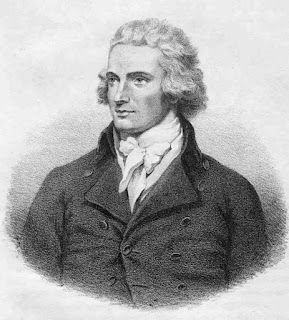Mungo Park and the River Niger: How Fela Anikulapo-Kuti Threw Nigerian Historical Intelligence off Balance
Mungo Park and the River Niger: How Fela Anikulapo-Kuti Threw Nigerian Historical Intelligence off Balance
- Emeka Esogbue
Fela Anikulapo-Kuti, dubbed the "King of Afrobeat," is arguably the greatest artist in Nigeria. His status as a political activist and Pan Africanist gave him practically all advantages. In this sense, he was a respected sociopolitical voice, and all those who heard him learned something.
Fela spent his whole career as a musician denouncing the injustices that afflicted African society. His vocalization was an outspoken and perhaps even angry denunciation of colonialism, which he saw as the source of the sociocultural, political, and economic difficulties that Africans continue to face. It was this mindset he encountered at Mungo Park, which is currently being adopted by perhaps half of Nigerians.
A satirical song by Fela about Mungo Park's purported "discovery" of the River Niger led to a great deal of misconception among Nigerians about this historical occurrence.
"Discovery" is another word for "EXPLORATION" in historical contexts. By "discovering" the River Niger, Mungo Park really meant to EXPLORE it.
Was it ever claimed by Mungo Park that no one in history understood the location of the river but himself? No, in fact, he described the role of native Africans who helped him on that exploratory expedition in his book "Travels into the Interior of Africa," which is still on hand at the Lagos State University Library.
To explore a place is to journey through the uncharted territory in search of knowledge or fresh insights. Another book that Mungo Park authored was called "The Exploration of Africa." While "discovery" in English class refers to "finding something for the first time," in history it refers to the act of penetrating or ranging over for goals, particularly geographical ones. This is for the members of the discovery discipline.
The River Niger was a name that the Europeans of his era were familiar with because it had been a significant hub for African societies for many years prior to his birth, therefore he was not even the first European to witness it. He never claimed to be the first European and was never the first to glimpse the River.
Some historical documents credit Leo Africanus with writing the first geography of Africa in the sixteenth century, and he is most likely the first European to visit the Niger, at least that seems likely to me judging from what is in the book.
Despite having lived in the Roman Empire for almost two millennia, Ptolemy is documented to have named two rivers in the Sahara: The "Gir" and the Nigir, which is located further south. Ptolemy is another clear evidence of the European knowledge of the River Niger even before the birth of Mungo Park.
Never once did Park assert that he had found the Niger or that he was the first to find it. When he set out, all he knew was that the Congo and Niger rivers merged. This further demonstrates that Mungo Park was aware of the river's existence before to embarking on his exploratory expedition.
Due to the prolonged prosperity of trade over the Sahara, the Niger was well-known to Europeans for a considerable amount of time. Furthermore, the Greeks and Romans were well aware of the river's presence. They were aware that it ran south of the Desert to the east.
It was often believed, prior to the 19th century, that it joined the Nile River from this direction. Mungo Park, who had never been there, was perplexed by this and was attempting to ascertain whether it was real when he tragically passed away before finishing the investigation.
He found out, however, that the river veered south and ultimately joined the Congo. It was proven that the River Niger, which originated in Timbuctoo and flowed into the sea through the Delta in what is now modern-day Nigeria, sometime after his death, maybe in 1830.
It is imperative that our people stop disseminating misinformation and relying solely on the white sarcasm of Fela. The phrase "Mungo Park investigated the Niger" was once used to refer to "Mungo Park found the Niger." It is puzzling why the spreaders do not realize that the word "discovery" has historically been used synonymously with exploration.
The affluent people who died while traveling to find the ruins of the Titanic ship were the subject of news reports a few months ago. They were by no means the first to try to see the wreck. It took Robert Ballard eight days in 1985 to locate the lost ship. The tragic 2023 expedition was nonetheless a finding regardless of whether Ballard had made the discovery or not.
Historians have their own language, much as any other experts.

Comments
Post a Comment